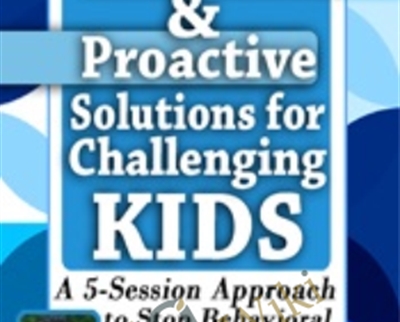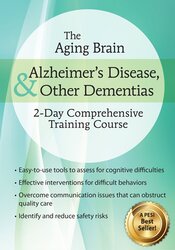Collaborative & Proactive Solutions for Challenging Kids: A 5-Session Approach to Stop Behavioral Difficulties – Ross Greene
Original price was: $199.99.$55.00Current price is: $55.00.
Collaborative & Proactive Solutions for Challenging Kids: A 5-Session Approach to Stop Behavioral Difficulties – Ross Greene Download. Volatile, reactive, …
Salepage link: At HERE. Archive:
Volatile, reactive, and high-conflict families have worked with multiple therapists by the time they get to you. These families challenge the skills of even the most seasoned therapist. The parents are frustrated that things haven’t improved, and the kids are tired of showing up for therapy appointments.
Internationally renowned psychologist and New York Times bestselling author Dr. Ross Greene –the originator of the Collaborative & Proactive Solutions (CPS) model, as described in his books The Explosive Child, Lost at School, Lost & Found, and the recently released Raising Human Beings – will transform your approach with these most challenging families. In this unique video series, see Dr. Greene’s effective, empirically-supported CPS model in action.
In real sessions, watch Dr. Greene help actual parents and kids solve the problems that contribute to challenging episodes, rather than simply modifying the behaviors that kids exhibit in response to those problems. Dr. Greene masterfully describes and utilizes the key elements of his CPS model, and then steps back and explains the crucial strategies that make this model an effective approach to therapy. In addition, you will learn how to utilize Dr. Greene’s Assessment of Lagging Skills and Unsolved Problems, which sets the stage for and organizes your approach to helping families solve problems together. Dr. Greene shares his methodology for solving problems collaboratively, complete with extensive video examples of each step.
Dr. Greene’s empirically supported CPS model will help transform angry, explosive and punitive interactions between family members into collaborative and supportive exchanges in which problems can be solved and relationships rebuilt. By incorporating Dr. Greene’s CPS approach in your practice, you will not only improve kids’ behavior but also improve parent-child communication. Families will learn the problem-solving and emotion-regulation skills they’re often lacking. But the CPS model doesn’t just help kids and families…it will help you feel a renewed sense of passion and confidence when working with the most at-risk kids and families.
Ross W. Greene, Ph.D., consults extensively to families, general and special education schools, inpatient and residential facilities, and systems of juvenile detention, and lectures widely throughout the world. Dr. Greene is the originator of an empirically supported model of psychosocial treatment for challenging kids now called Collaborative & Proactive Solutions (CPS). He is author of the highly-acclaimed books The Explosive Child, Lost at School and Raising Human Beings, as well as numerous articles, chapters and scientific papers on the effectiveness of the CPS model, the classification of and outcomes in youth with social, emotional and behavioral challenges and student-teacher compatibility. He was on the faculty at Harvard Medical School for over 20 years, and is now the Founding Director of the non-profit Lives in the Balance (www.livesinthebalance.org) and on the adjunct faculty in the Department of Psychology at Virginia Tech and at University of Technology in Sydney, Australia.
- Characterize the main difference between the classical therapeutic approach to treating a child’s challenging behavior and the Collaborative & Proactive Solutions (CPS) approach to solving the same issue.
- Assess what a child is communicating when he/she displays challenging behavior.
- Articulate the clinician’s approach to treating a child’s challenging behavior within the CPS Model.
- Present the five types of sessions in the CPS Model and how the role of the clinician changes for each of the five types.
- Characterize the ALSUP form and indicate how the clinician uses it to ascertain the child’s lagging skills and unsolved problems.
- Articulate the positives and negatives of all three approaches to handling an unsolved problem: Plan A, Plan B and Plan C.
- Articulate how to involve the parent(s)/caregiver(s) AND the child in the collaborative approach (Plan B).
- Breakdown the three steps to the Plan B approach.
- Articulate how the clinician can teach the parent(s)/caregiver(s) to ‘drill’ for more information from the child during the Empathy Step of the Plan B approach.
- Provide sample wording for the Invitation Step of the Plan B approach.
- Communicate the importance of making sure that the unsolved problem(s) chosen for use in Plan B are specific, realistic and mutually acceptable to all parties involved.
Collaborative and Proactive Solutions Model
- Types of Sessions
- Investigator
- Instructor
- empathy
- define adult concerns
- invitation to a mutually satisfactory solution
- Demonstrator
- Coach
- Interference factors
Keys to Complete CPS Sessions
- Assessment of Lagging Skills and Unsolved Problems (Investigator Session)
- Strategies to turn the ALSUP form into a ‘discussion guide’, not a ‘checklist’
- Tools to identify a specific lagging skill
- Guidelines to name the unsolved problems
- The unsolved problem should contain NO challenging behavior – replaced by the word “difficulty”
- The unsolved problem contains no ‘adult theories’ as to the cause of the problem
- The unsolved problem is split, not clumped make it much easier for the child to talk about unsolved problems.
- Make sure the unsolved problem is as specific as possible:
- Ask “W” questions: Who, What, Where, When (not Why)
- Ask parents what specific expectation the child is having difficulty meeting in the scenario they are describing
- In-Session Demonstration Videos: ALSUP Sessions
- Clinician/Parent Meeting (Instructor Session)
- Three approaches to handling an unsolved problem
- Plan A: Adult decides the solution
- Plan B: Adult and child collaborate to solve the problem
- Empathy step
- Define adult concerns step
- Invitation step
- Plan C: Unsolved problem prioritization
- Clinician, Parent and Child Meeting (Demonstrator Session )
- Strategies to:
- Overcome competing solutions
- Identify when too many solutions and/or concerns are on the table
- Propose solutions that are realistic and satisfactory to all parties
- Foresee proposed solutions that will fail, and why
- Follow-Up Sessions (Coaching & Interference Sessions)
- As the problem-solving facilitator, the clinician should aim to:
- Keep the session structured
- Keep the family focused on the unsolved problem
- Help the family stay on track
- Identify what part of the plan is difficult and coach the proper skills some more
- Troubleshoot other parts of the plan until the family achieves success – then move on to another high-priority unsolved problem
- Help the family become self-sufficient in carrying out the plan for future unsolved problems
Here's an overview of the prominent keywords and a list of famous authors:
Business and Sales: Explore business strategies, sales skills, entrepreneurship, and brand-building from authors like Joe Wicks, Jillian Michaels, and Tony Horton.
Sports and Fitness: Enhance athleticism, improve health and fitness with guidance from experts like Shaun T, Kayla Itsines, and Yoga with Adriene.
Personal Development: Develop communication skills, time management, creative thinking, and enhance self-awareness from authors like Gretchen Rubin, Simon Sinek, and Marie Kondo.
Technology and Coding: Learn about artificial intelligence, data analytics, programming, and blockchain technology from thought leaders like Neil deGrasse Tyson, Amy Cuddy, and Malcolm Gladwell.
Lifestyle and Wellness: Discover courses on holistic health, yoga, and healthy living from authors like Elizabeth Gilbert, Bill Nye, and Tracy Anderson.
Art and Creativity: Explore the world of art, creativity, and painting with guidance from renowned artists like Bob Ross and others.
All the courses on WSOlib are led by top authors and experts in their respective fields. Rest assured that the knowledge and skills you acquire are reliable and highly applicable.
Specification: Collaborative & Proactive Solutions for Challenging Kids: A 5-Session Approach to Stop Behavioral Difficulties – Ross Greene
|
User Reviews
Only logged in customers who have purchased this product may leave a review.

Original price was: $199.99.$55.00Current price is: $55.00.












There are no reviews yet.